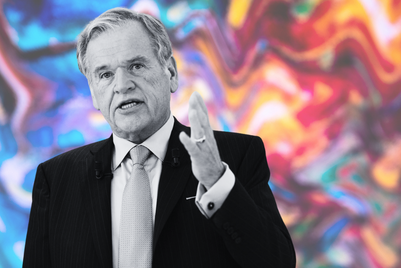
It shouldn’t take a bereavement to switch off.
But it did. My wife’s sister passed away with stage four cancer four weeks ago. I've always hated the phrase “battle with cancer”. It isn’t some sort of test of strength and mettle. It’s a disease that kills more people each year than any other and succumbing to it isn’t a sign of weakness.
No matter how long someone has been in cancer treatment for, nothing can ever prepare you for the utter shock and sadness that hits you when death does finally come. It’s an event that has ripped a hole through our family. Nikki wasn’t just a loving sister to my wife. She was an amazing mother to two wonderful kids and a best friend to so many people including myself for the past 18 years, and we’ll miss her every day.
But this article isn’t about death or grief. It’s about taking time out and about the fact that it took such a seismic event like a family bereavement for me to switch off, and I mean really switch off, for the first time in my career.
Telling my seven-year-old son and my nine-year-old daughter that they weren’t going to see their Auntie Nikki again was the hardest thing I’ve ever done in my life. And for reasons I won’t go into here, I wish I could turn back time and have prepared them for this news in a different way.
But hindsight’s a wonderful and cruel thing. And it was at that moment when the news hit them that absolutely everything that has happened in my life paled into insignificance. It was then that I sent a message to partners at work that I wasn’t going to be around for a while so I could focus on my family. I removed Slack from my iPhone. I didn’t answer calls or check emails, not even after the kids were in bed. I truly switched off.
“Switching off”. It should technically be the easiest thing to do. But why is it that we are an industry that seems hell-bent on not letting go? Agency burnout rates are soaring, with a recent Nabs study telling us that it has seen a 35% rise in calls to its helpline for emotional support. Another recent study by the Account Planning Group found that over 60% of planners feel as though they are working longer hours than ever and 65% struggle to maintain a healthy work-life balance.
But switching off has proven to be highly beneficial to the creative process. In his book Too Fast to Think, Chris Lewis delves into the threat “always on” culture poses to creativity and to idea generation. Lewis speaks to creativity as being a four-step process: Induction, Incubation, Inspiration and Ignition in the ratio of 40/30/20/10.
Lewis says: “Seventy per cent of the creative process actually occurs before people even think that they’re having an idea.” No wonder Albert Einstein once said: “Creativity is the residue of time wasted.” Switching off fuels the creative process and we need to recognise this fact as a creative industry.
So what can we do about this? Many agencies have made great strides in recent years to recognise the importance of allowing employees time and affording space to people so they can switch off.
I am lucky enough to work for an agency that recognises the importance of allowing its staff the time and space to grieve. The immediate response from Ete, our CEO, was to “take as long as you need to be with your family”. But I realise not every agency has this culture embedded into it.
We need more agency initiatives that recognise and welcome staff to take leave when faced with times of personal stress and trauma. Initiatives like Creature and Lucky Generals' brilliantly forward-thinking miscarriage policies gave a much-needed voice and support for the thousands of families who have been affected by the trauma of losing a child.
But importantly, we need more industry-wide drives to push for time to switch off as simply a part of the day-to-day job. Initiatives like the APG’s brilliant Right to Disconnect, which mobilised the industry’s planning community to spearhead change in agencies to afford members of staff fundamental rights to shut off from work.
But I think the most important thing we could all do is to make an effort to move the conversation on from affording people time to switch off “for personal reasons” to time to switch off for the benefit of the agency you work for.
Even though it was under extremely difficult circumstances, I came back to work after having switched off feeling more energised, creative and hugely grateful to work for an agency with such supportive colleagues. A healthier, happier workforce isn’t a “nice to have”, it is fundamental to the creative process and will pay back to agencies in the long term. And hopefully, it won’t take bereavement for others to truly switch off from work.

Gen Kobayashi is chief strategy officer at Engine Creative





.jpg&h=334&w=500&q=100&v=20250320&c=1)
.jpg&h=334&w=500&q=100&v=20250320&c=1)
+(1).jpg&h=334&w=500&q=100&v=20250320&c=1)



.jpg&h=334&w=500&q=100&v=20250320&c=1)
.jpg&h=268&w=401&q=100&v=20250320&c=1)






